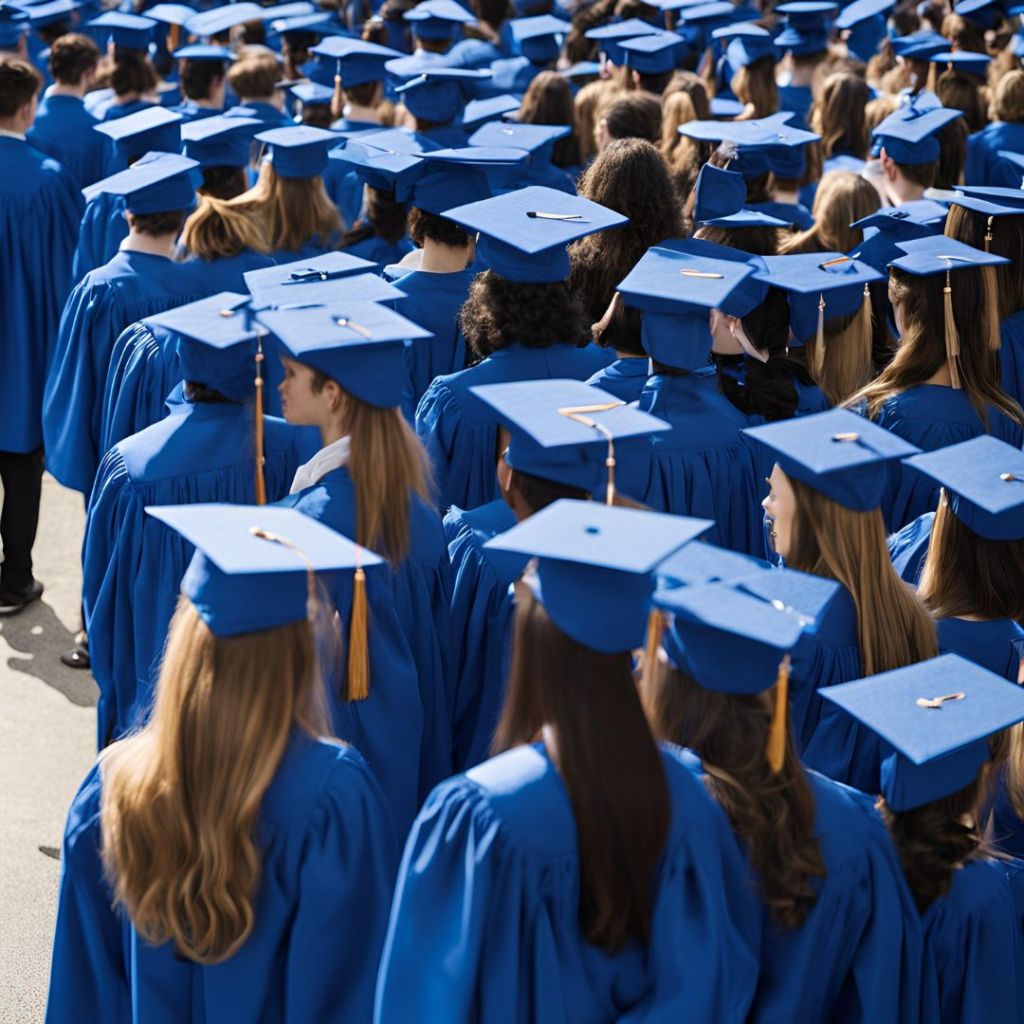Yesterday, 206 students walked across the stage, accepted their diplomas, shook hands with a bunch of people they didn’t know, and walked off into their futures.
They’re an impressive group. Eight of them are National Merit finalists, putting them among the top 1% of American students. An additional 11 are commended scholars (top 4% nationally). Collectively, they took 136 advanced placement courses and 255 college credit plus classes, in which they earned both high school and college credit. One had a perfect ACT score.
In addition to their academic success, they’ve excelled in athletics, performing arts, and extracurriculars. Some have earned certifications in technical fields that make them immediately attractive to potential employers. By every measure, they’ve received a top-notch education from one of the best schools in the state.

But are they ready for what’s next?
Are they prepared for a world where there’s no real distinction between fiction and non-fiction? Are they ready for “news” sources that embrace deep fakes and “alternative facts?” Can they handle a society where we seem to trust our Google searches more than knowledgeable, experienced professionals?
Have we prepared these students for the reality that more education does not necessarily lead to a higher standard of living and greater economic prosperity? Do they understand that knowledge alone is no longer power?
Do these students realize that the economic deck is stacked against them? Higher education, health care, and housing costs have increased a lot faster than inflation over the course of their lives, while wage growth has been (at best) stagnant. The formula for success that their grandparents used — get a good education, start a successful career, buy a house, have a family, retire in good health and relative youth — is no longer within reach for most of them.
Do they recognize that their generation will need to address the environmental warnings that their predecessors have been ignoring for generations? The implications of a reliance on fossil fuels — and the climate change that results from an unwillingness to adapt — are likely to become catalysts for global crises in the coming decades.
Do they realize that the dangerous growth of extreme nationalism around the world could be a portent of global war? The frustration that arises when the reality of our lives doesn’t match the promise to which we feel entitled often leads to the prioritization of nation-first initiatives and the scapegoating of immigrants and minorities. We’ve seen this lead to genocide and sectarian violence many times, and it often feels like we’re on that path again.
The promises baked into a traditional education are not likely to play out the way they’ve been sold to our young scholars. For these students, the path to “success” is going to be a lot trickier than it was for previous generations. When “professional” and “reasonably decent Googler” carry the same weight, there’s not much sense in becoming the professional.
I’d like to think, though, that we’ve done more than just fill these students with knowledge. For most of my career, I’ve been preaching about the need to embrace next generation skills. While we still have to do all of the traditional things that make us an “excellent” school by traditional measures, we also create curious learners. Our students approach the world with a sense of wonder. They embrace uncertainty, and realize that they must continuously learn new things and adapt their thinking and understanding of the world to accommodate those new ideas.
Our students are aware of the fact that they need each other to thrive. They’re part of a collaborative community, and that community extends beyond the geography of their classroom, school, or town. They take care of each other. They embrace empathy and compassion where others see opportunities for discrimination and exploitation. They leverage their differences to make everyone better. They work well in teams, even when they disagree, and respect one another.
Today’s students are starting to understand the landscape of information abundance. They recognize that truth can be elusive. They understand that different people view the world through different lenses, and those lenses change their perceptions of truth. They also realize that we can’t all be experts in all of the things. Learning who to trust and how to identify bias are central skills in navigating the information landscape.
Our students are very good at following rules. In many respects, success in high school is dependent on a student’s ability to comply with expectations, even if the purpose isn’t understood. But more than that, our students are innovators. They look for creative solutions to the challenges they face. They adapt well. They’re not afraid to try new things. And when those things don’t work out, they stick with the problem and try different solutions until they find something that fits. Sometimes we call that innovation. Other times, it’s entrepreneurship or creativity or improv. But it’s the same idea regardless of how we frame it.
It’s definitely a work in progress, this new approach to education. We certainly have a long way to go. But the students we’re producing today are much better prepared to face these challenges than we were. And the students coming behind them are going to be even better.
We could learn a lot from them.
